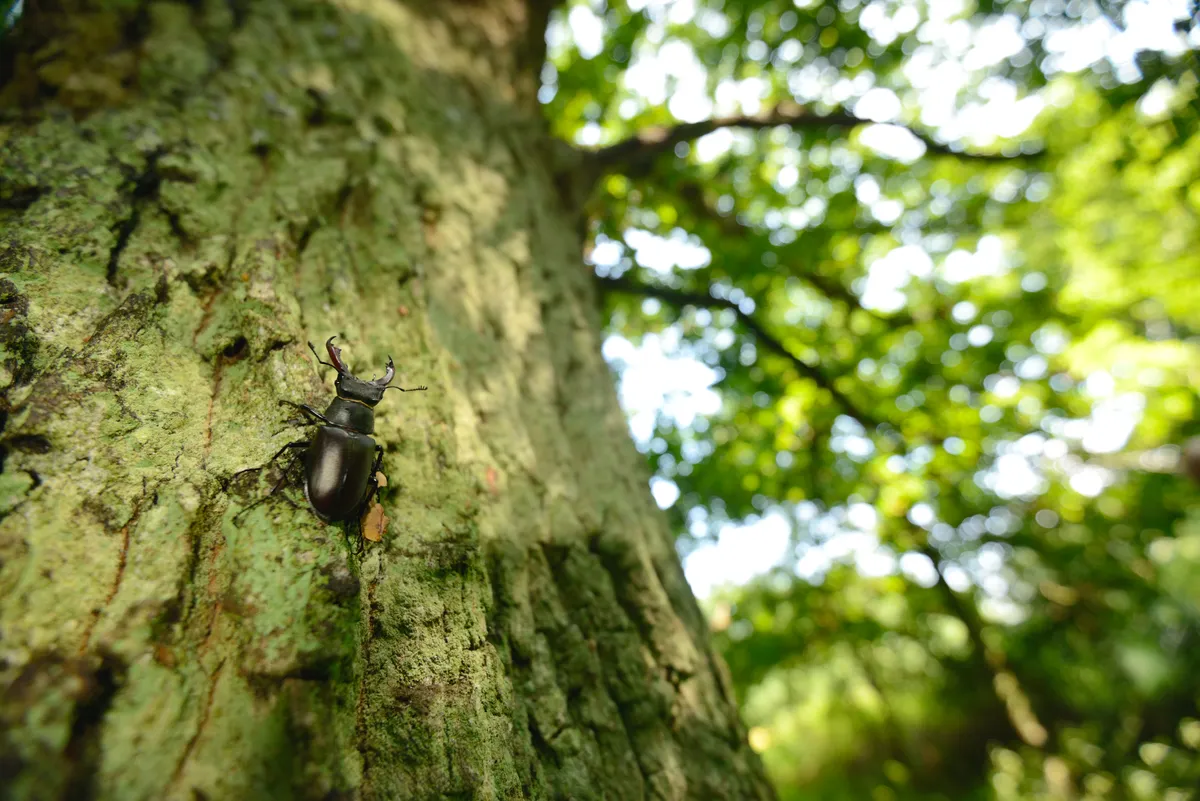Bug lovers have been called on to submit their sightings of endangered stag beetles – or larvae – as part of the UK’s annual Great Stag Hunt survey.
The People’s Trust for Endangered Species (PTES) is heading up the survey and is particularly interested in sightings of stag beetles in woodlands, gardens, allotments and parks.
Stag beetles are usually spotted between late May and late July. You can usually find them in green spaces, such as hedgerows, orchards and allotments.

Why you should get involved in the Great Stag Hunt
‘We know stag beetles live in woodlands in mainland Europe, but we don’t know whether they’re living in UK woodlands,’ says Laura Bower, conservation officer at PTES. ‘Although these beautiful beetles are doing well in some parts of the country, in other areas they’re extremely rare and even extinct in some places.’
Last year, over 60,000 sightings of stag beetles were recorded during the survey, with the greatest number seen in Greater London, closely followed by Hampshire, Surrey, Berkshire and Suffolk.
More on beetles:
How to spot a stag beetle
Stag beetles are Britain’s largest species of land beetle. The males have antler-like manidbles (jaws) and are easier to spot. They can grow up to 75mm in length, are shiny black with chestnut wing cases and are often seen flying around looking for mates.
Females are slightly smaller, only reaching between 30-50mm in length, and have smaller mandibles. They’re more often spotted on the ground, searching for somewhere to lay their eggs.
How to take part in the national stag beetle survey
The survey runs until July. Log your sightings at www.stagbeetles.ptes.org.
Main image: Male stag beetle on a branch. © Ben Andrews






